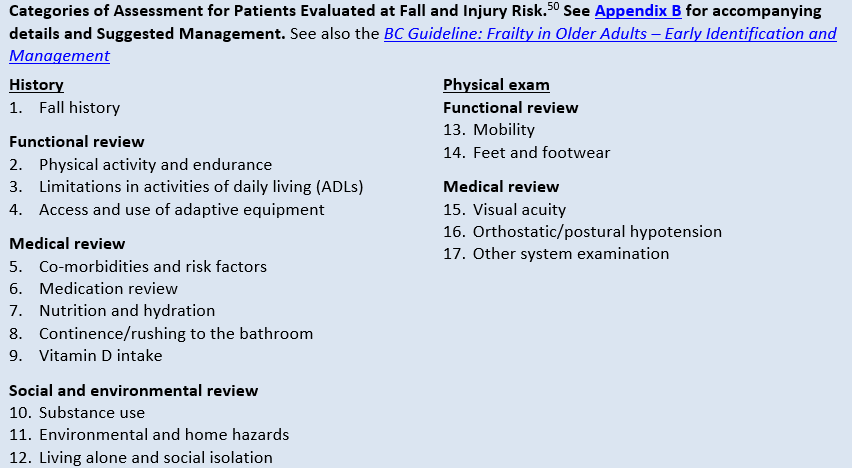The smart Trick of Dementia Fall Risk That Nobody is Talking About
Table of ContentsNot known Details About Dementia Fall Risk Unknown Facts About Dementia Fall RiskThe Main Principles Of Dementia Fall Risk Indicators on Dementia Fall Risk You Should KnowSee This Report on Dementia Fall Risk
You may be anxious since you have actually had an autumn prior to or since you've seen you're starting to really feel unsteady on your feet. You could have discovered changes to your health and wellness, or just seem like you're slowing down a little. Whatever the factor, it isn't uncommon to end up being careful and lose self-confidence, and this can quit you doing the things you made use of to do and make you feel extra separated.If you've had a loss or you've started to really feel unstable, tell your doctor also if you feel great or else. Your doctor can check your balance and the method you walk to see if enhancements can be made. They might be able to refer you for a drops risk assessment or to the falls avoidance solution.
This information can be acquired with meetings with the person, their caregivers, and a testimonial of their medical records. Begin by asking the private regarding their history of drops, including the frequency and scenarios of any recent falls. Dementia Fall Risk. Inquire regarding any mobility problems they may experience, such as unstable or difficulty strolling
Conduct a comprehensive testimonial of the individual's medicines, paying certain interest to those known to raise the threat of falls, such as sedatives or medicines that reduced high blood pressure. Determine if they are taking numerous medicines or if there have actually been recent modifications in their medication regimen. Assess the person's home environment for possible hazards that can boost the threat of falls, such as bad lights, loose rugs, or lack of grab bars in the washroom.
The Buzz on Dementia Fall Risk
Guide the individual through the autumn danger analysis type, discussing each concern and taping their responses accurately. Make sure that the individual understands the function of the evaluation and feels comfortable supplying honest responses. Determine the overall danger score based on the responses offered in the analysis form. Figure out the person's danger category (low, medium, or high) based upon the overall score and the existence of automatic high-risk standing elements.
Frequently monitor the person's progression and reassess their danger of falls as required. Provide continuous education and learning and support to promote safety and minimize the risk of falls in their day-to-day living activities.
Several researches have actually revealed that physical treatment can assist to decrease the threat of dropping in grownups ages 65 and older. In a new study (that took a look at falls risk in women ages 80 and older), scientists computed the financial impact of choosing physical therapy to avoid drops, and they located that doing so saves $2,144, including all the hidden prices of your time, discomfort, missed life events, and the dollars spent article for services.
What Does Dementia Fall Risk Mean?
Examining your equilibrium, strength, and walking capacity. A home safety evaluation. Based on the analysis results, your physical therapist will certainly make a plan that is customized to your details needs.
Older adults who have problem strolling and chatting you can find out more at the same time are at a greater threat of dropping. Dementia Fall Risk. To help increase your safety throughout day-to-day tasks, your physical therapist may develop a training program that will test you to keep standing and strolling while you do an additional job. Examples include strolling or standing while counting in reverse, having a conversation, or lugging a bag of grocery stores
Your physical therapist also can identify which activities you ought to prevent to remain risk-free. Community-based drops avoidance programs assist people to: Minimize their fear of dropping. Set goals for boosting their physical task. Make their homes much safer. Exercise much more to raise their toughness and equilibrium. These programs often are led by volunteer coaches.
Some Of Dementia Fall Risk

Measles, or rubeola, is a very infectious, severe viral infectious disease triggered by the measles virus. Some individuals believe of measles as just a rash and high temperature that clears in a few days; however, measles can cause major health difficulties, particularly in kids younger than 5-years-old. The very best security against measles is the measles, mumps, and rubella (MMR) vaccine.
Loss are a typical reason for injury amongst older adults. According to the CDC, in one year alone, fall-related injuries added to over $50 billion in clinical costs (Dementia Fall Risk). In health center setups, older adults go to especially high risk of drops since their lowered wheelchair from being restricted to an area or bed.
The Ultimate Guide To Dementia Fall Risk

She has a medical background of seizure disorder and hypertension. She is getting an IV mixture and taking Gabapentin and Lasix. She has no background of drops, her gait is stable, and she nullifies without issues. The previous nurse states that she requires aid to the bathroom when she needs to go.
Instances of typical loss interventions/measures consist of: Ensuring a client's necessary things are within reach. Putting the patient's bed rails up with the alarm on. Assisting a client while they're obtaining up from bed. Past comprehending exactly how to utilize the Johns Hopkins Autumn Danger Evaluation Device, it is essential that centers include its usage right into an extra detailed loss avoidance plan.